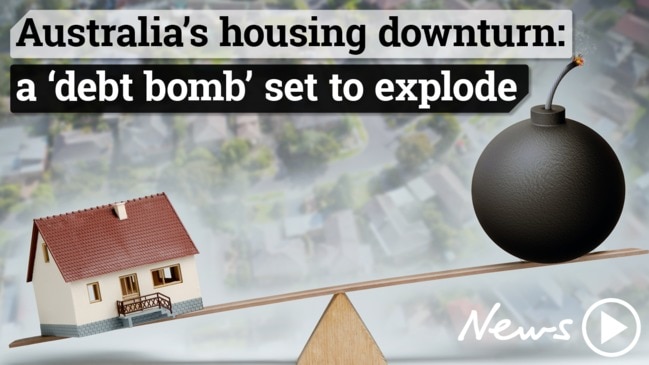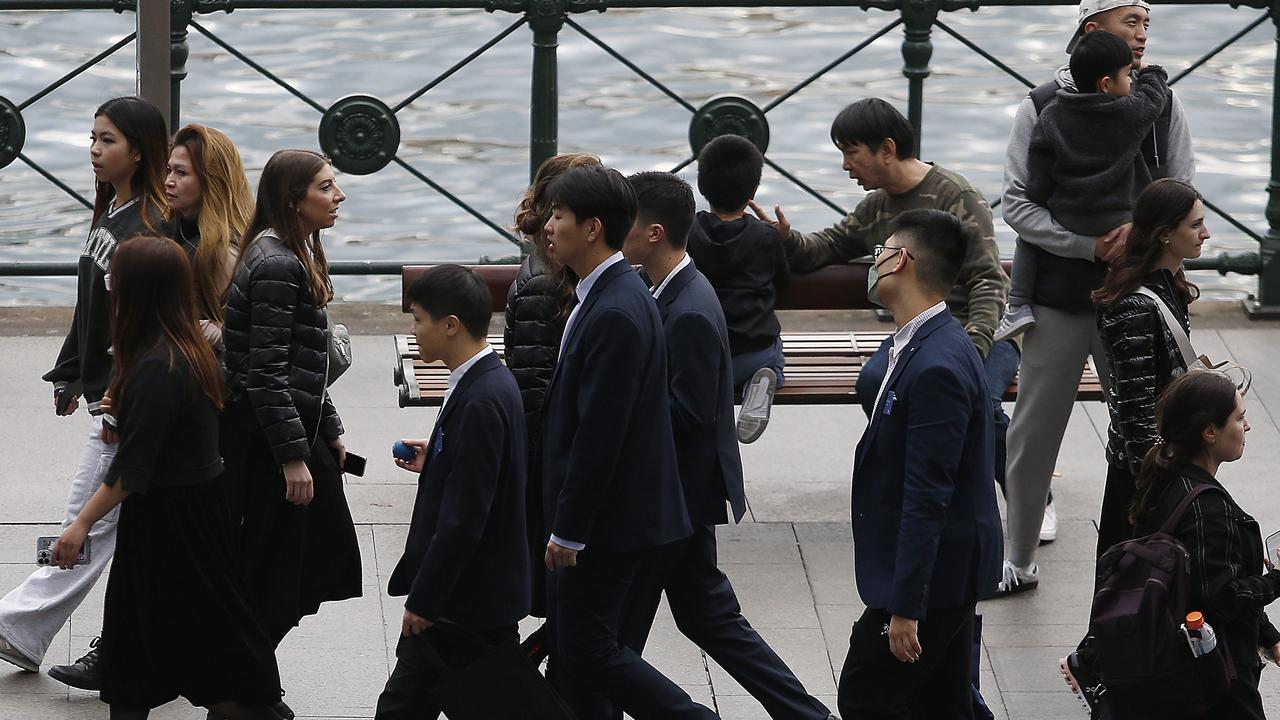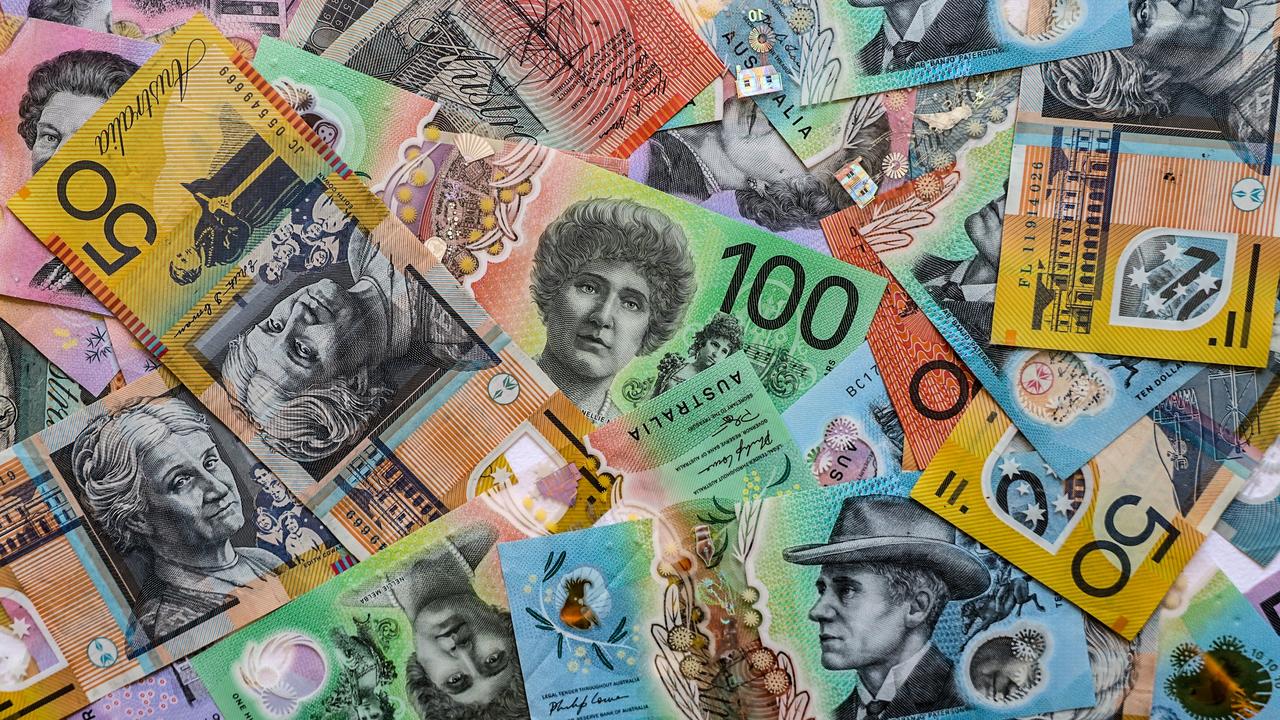House prices ‘falling by $1000 a week’
IT has now been confirmed that house prices in Sydney and Melbourne are falling by $1000 a week as “gravity catches up with stupidity”.

HOUSE prices in Sydney and Melbourne are now falling by $1000 per week but a full-blown collapse remains unlikely in the absence of a major global shock, a leading economist says.
Deloitte Access Economics partner Chris Richardson’s latest business outlook says Australia’s growth has continued to accelerate despite the “house price fall we had to have”.
CoreLogic figures show national house prices fell for the 12th consecutive month in September, with Sydney and Melbourne now 6.2 per cent and 4.4 per cent down from their respective peaks in July and November 2017.
“House prices are falling by about $1000 a week in both Sydney and Melbourne and that pace has accelerated a bit of late,” Mr Richardson said. “Mostly because they were super-silly. It’s not ‘oh dear’ rates of falls but it’s certainly notable. The phrase I’m using is gravity is finally catching up with stupidity.”
He predicts another 5-10 per cent in Sydney and Melbourne. “Another way to think of it is five years from now, Australian house prices may not be much different than where they are today, and that will be a good thing,” he said.
“This is not a house price collapse, we are returning to more sensible house prices in a reasonably orderly fashion. It’s not causing particular damage to the Australian economy.”
Australian families now have the second highest debt to income ratio in the world behind only the Swiss.
“That’s just a slightly uncomfortable position to be in, other things equal,” he said.
“Basically we went from a China boom to a house price boom. We cut interest rates and housing prices took off. That did smooth the way for us, but it has left us vulnerable.”
Despite the Reserve Bank keeping the official cash rate on hold at its record low of 1.5 per cent for more than two years, three of the Big Four have begun to slowly raise mortgage rates due to higher overseas funding costs.
At the same time, Chinese investment in Australian property has collapsed, banks have tightened their lending standards to local borrowers and are expected to further tighten in the fallout of the banking royal commission.
Mr Richardson argues economic growth “a smidge above trend” this year and next should keep job gains solid and unemployment edging down. Combined with gradual inflation, wages should recover “albeit at snail’s pace”.
But that will be a “Faustian bargain” because it will come with a matching lift in interest rates, which in turn will depress consumer spending and hence the wider economy over the next few years.
Most experts are tipping interest rates to remain on hold until at least late-2019. In the context of the housing market, Mr Richardson says higher interest rates alone won’t crash prices.
“People think of interest rates as the killer for house prices and they certainly can put pressure on them, but the true kryptonite is unemployment,” he said.
“Unemployment in Australia is back down to 5 per cent, the lowest since 2012.”
That doesn’t mean the risk isn’t there.
“Twenty-seven years without a recession, that world record is a remarkable thing but we have not somehow abolished recessions in Australia,” he said.
“If I had to guess, the most likely thing is something goes wrong in China’s economy and that laps up on the shores of Australia. It is not what we forecast, but world economies are more volatile than they used to be.”
Last week, AMP Capital downgraded its forecast for the housing market to 20 per cent top-to-bottom falls in Sydney and Melbourne spread out to 2020. Chief economist Dr Shane Oliver described current conditions as “a perfect storm for the property market”.
Morgan Stanley earlier this month said it was expecting 15 per cent falls, “which would mark the largest decline since the early 1980s”, while ANZ and Macquarie have predicted falls of 10 per cent.
Labor has flagged changes to negative gearing and capital gains tax concessions if it wins next year’s election, which critics say will put further pressure on house prices.
Economic modelling released by the Master Builders Association on Wednesday found Labor’s policy would result in 42,000 fewer homes being built, 32,000 fewer full-time jobs and an $11.8 billion drop in building activity over five years.
“The MBA report joins a growing list of experts saying that Labor’s policies would have a significant impact on Australia’s economy and property market, particularly at a time when the housing marking is softening,” Treasurer Josh Frydenberg said in a statement.
“RiskWise warned that median house prices in New South Wales and Victoria could fall about 9 per cent, Citi’s research found Labor’s policy could ‘accelerate the cyclical weaknesses in housing prices’ and Standard and Poor’s warned of the consequences of falling house prices on the broader economy.”
But Shadow Treasurer Chris Bowen slammed the report. “This research does NOT model Labor’s reforms to negative gearing,” he said in a statement.
“Labor is not ‘ending negative gearing’ — it’s reforming it to ensure it works best for the economy and jobs by retaining it for new properties only. Any property investments made before the policy start-date will still be able to access negative gearing.”




